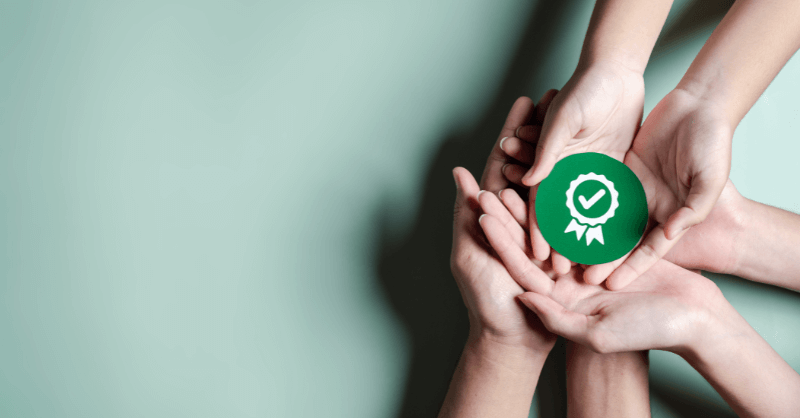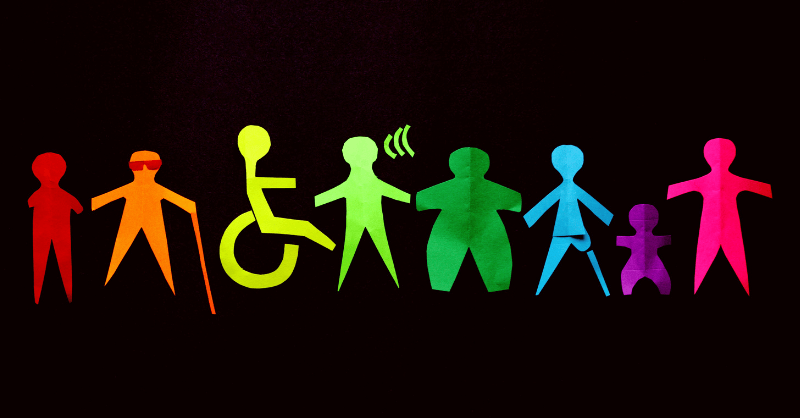10 Best Ways to Look After Your Mental Health


![]() 25 minutes
25 minutes

1103 Viewers
We all know how or have some strategies to stay fit and healthy. But, when it comes to mental health, you might not know how to cope with it. Do you know that one in six adults in England has a type of mental disorder? Also, 4-10% of people will suffer from depression in their lifetime. Thus, taking care of your own mental health is an essential part of staying fit and healthy. There are many ways to look after your mental health by yourself.
However, looking after your mental health doesn’t always mean seeking professional support and treatment. You can take so many steps to take care of your mental health every day. However, we are all different, and what works for you might not work for other people.
So, we have prepared a list of ways to look after your mental health. Stick to the blog to know the different types of mental disorder, causes, treatment, and 10 best ways to look after your health.
Table of Contents
What is mental health?
Mental health includes the states of the well-being of our emotional, psychological, and social life. It affects the way we think, feel, and behave. Also, it helps determine how we manage stress, build relationships with others, and make choices in our lives. Mental health is crucial in every stage of our life, from childhood and adolescence through adulthood. Mental health has a direct effect on our lives, such as-
1. Educational outcome.
2. Productivity at work.
3. Crime rate.
4. Development of Positive personal relationships.
5. Alcohol & drug abuse.
Causes of mental disorder
Anyone can have a mental disorder at any point in their lives. Mental health problems can affect your thinking, mood, and behaviour. The factors that contribute to mental illness are:
- Biological factors.
- Psychological factors.
- Lifestyle and environmental factors.
Biological Factors
Biological factors of mental illness can cause adverse effects on our mental health. Sometimes mental illness is caused due to abnormal nerve cell circuits or pathways of our brain. As a matter of fact, these nerve circuits connect one part of our brain with others. The nerve cell communicates with each other using special chemicals called neurotransmitters.
Common biological factors are genetics, infections, brain defects or injuries, parental damage, substance abuse, etc.
Genetics
Mental illnesses sometimes run in families, and one person can inherit them from their parents. Not to mention, susceptibility can be passed on in families through genes. And a person can inherit the susceptibility to the illness but doesn’t need to develop it.
Infection
Certain infections can help you to develop a mental disorder or worsen the symptoms. For example, paediatric autoimmune neuropsychiatric disorder (PANDAS) with the Streptococcus bacteria can help children develop obsessive-compulsive disorder (OCD) and other mental illnesses.
Brain defects or injury
Defects or injury to some regions of the brain may also cause some mental illnesses.
Prenatal damage
Disruption of early fetal brain development or trauma during childbirth may be a factor that can cause certain conditions. For example, loss of oxygen to the brain during delivery can cause autism spectrum disorder.
Substance abuse
A person having a long-term history of substance abuse often develops anxiety, depression, and paranoia.
Other factors
Poor nutrition and exposure to toxins sometimes play a role in developing mental illnesses. For example, exposure to lead at a young age can cause phobia, depression, mania, and schizophrenia.
Psychological Factors
You can also have a mental illness because of some psychological factors. These factors are:
- Childhood psychological trauma. For example, children who are victims of emotional, physical, or sexual abuse are at more risk.
- A substantial early loss, such as the loss of a parent.
- Negligence from family members.
- Incompetency to connect with others.
Lifestyle factors and environmental causes
Some stressors and factors can trigger mental illness or worsen the condition. These stressors and characteristics include:
- Overworking
- Poor sleep
- Lack of exercise
- Poor diet
- Lack of leisure time
- Lack of fun and recreational activities.
- A dysfunctional family life.
- Substance abuse by the person or his/her parents.
- Changing jobs or schools.
- Social or cultural expectations.
Types of mental health disorder
Mental health disorder is a common term for a group of illnesses. It affects a person’s thinking, perception, mood or behaviour. As a result, mental illness makes it difficult for a person to cope with work, relationships and other demands. Most people take medication, counselling, or both to manage their mental illness. The common types of mental illness are:
Anxiety disorders
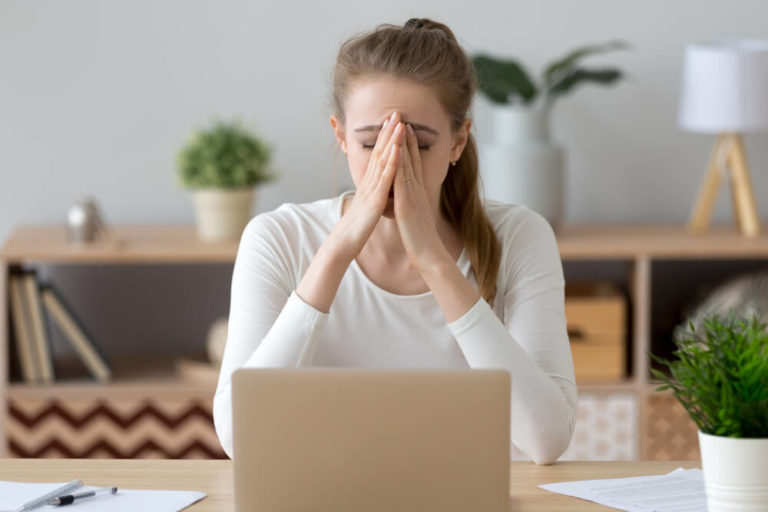
It is a common mental health disorder, and a lot of people are suffering from it worldwide. You can suffer from depression and anxiety at the same time, and it’s common. However, depression can be a severe illness that often leads to a high risk of self-harm and suicide.
Furthermore, anxiety disorders can have severe effects on your personal and social life. An anxiety disorder might lead you to social isolation, clinical depression. Also, it can impair your ability to work and study, and other daily routine activities. Sometimes, it can hurt your relationships with friends, family and colleagues.
Signs of anxiety disorder
The main symptom of anxiety disorder is constant fear or anxiety that interferes with daily activities. Other symptoms of anxiety disorders are:
- Panic or anxiety attacks. Or fear of these attacks.
- Avoidance behaviour in public situations.
- Physical anxiety reactions, such as trembling, faintness, sweating, difficulty in breathing or nausea.
Types of anxiety disorders
Anxiety disorders are a group of mental health problems. It becomes a disorder when it is irrational, excessive and also interferes with a person’s ability. Anxiety disorders include:
1. Generalised anxiety disorder
It is excessive anxiety. If you have it, you will constantly be worrying about many things. The focus of the thinking can be important or ordinary, such as family, work, money etc.
2. Social phobias
A person with social phobias is afraid of being evaluated or judged negatively by others. They fear that a social situation in public may cause humiliation. Therefore, they avoid using public toilets, speaking publicly, eating or drinking in public.
3. Specific phobias
People with phobias have endless and unreasonable fears about a particular subject or situation. They may be afraid of animals, places or people. Sometimes the anxiety is so severe that it causes a panic attack. For example, fear of open spaces (agoraphobia) or enclosed spaces (claustrophobia).
4. Panic disorders
Panic or anxiety attacks are common, but panic disorders are less common. About 2.5% of people suffer from panic disorder at some point in their life. And this disorder can only be diagnosed when the attacks are frequent and have a strong effect on one’s health.
Treatment of anxiety disorder
If you suffer from an anxiety disorder, you can recover from it with the proper treatment and support. Effective treatments for anxiety disorders may include:
- Cognitive behavioural therapy
- Exposure therapy
- Anxiety management and relaxation techniques
- Medication
Bipolar affective disorder
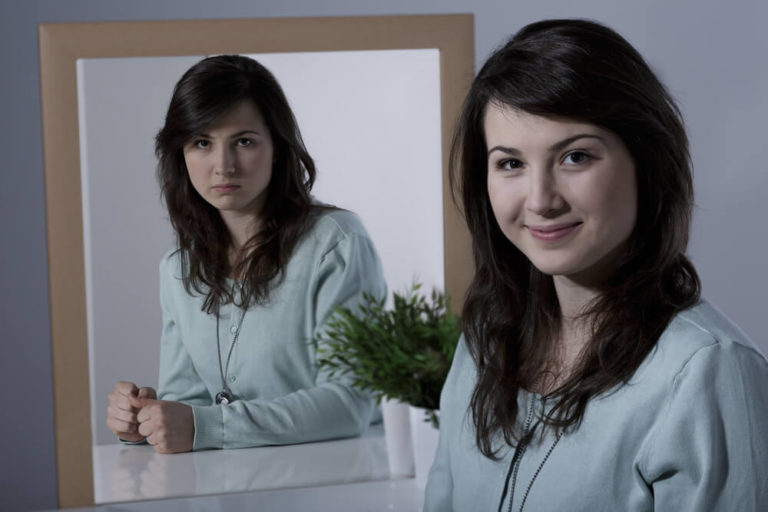
The bipolar affective disorder is a type of mood disorder. And people with bipolar disorder experience episodes of mania and depression. If you develop it, you may or may not experience psychotic symptoms. Because the exact cause of the bipolar disorder is unknown. However, the main reason for bipolar illness is genetic predisposition.
Types of bipolar disorder
There are several types of bipolar disorders. These disorders are-
Bipolar I disorder
With bipolar I disorder, mania episodes are intense enough to interfere with everyday life. People with bipolar I disorder experience:
- One or more manic episodes that can last at least one week,
- Depressive episodes, and
- Psychotic episodes.
Bipolar II disorder
Bipolar II disorder is less intense and frequent than bipolar I disorder. People with bipolar II disorder typically experience:
- Hypomanic episodes. People with hypomanic episodes experience less intense mania.
- Depressive episodes. It lasts only a few hours or days.
Cyclothymic disorder
In cyclothymic disorder, a person’s mood changes persistently and unpredictably. However, the highs and lows are much less extreme than bipolar I and II disorder. Also, the episodes are shorter than bipolar I and II disorder.
Mixed episodes
Some people experience ‘mixed episodes’ of mental disorders. They share some signs and symptoms of both depression and mania.
Signs and symptoms of bipolar disorder
The signs and symptoms of bipolar disorder can look very different in different people. Symptoms vary greatly in their pattern, intensity, and frequency. The signs and symptom include:
- Depressed mood, such as feeling sad, empty, hopeless.
- Marked loss of interest or feeling no pleasure in activities.
- Increase or decrease in appetite.
- Either insomnia or sleeping too much.
- Fatigue or loss of energy.
- Either restlessness or slowed behaviour.
- Feelings of worthlessness or guilt.
- Thinking about, planning or attempting suicide.
Treatment of the bipolar disorder
Bipolar disorder can be treatable, but recovery requires long-term treatment and management. Treatment options for bipolar disorder may include:
- Psychological therapies
- Hospitalisation
- Mood-stabilising medications
- Antidepressant medications
- Antipsychotic medications
- Self-help groups for emotional support and understanding.
Depression is a severe and pervasive mood disorder. It affects how you feel, the way you think and how you act. If you are suffering from depression, you may feel sad, hopeless, helpless and worthless. However, the severity of this mental disorder totally depends on your ability to handle it.
Types of depression
Depending on the severity of symptoms, depression can be broken into two categories. The signs and symptoms vary from person to person. Some people experience mild and temporary episodes of depression, while others experience severe and ongoing depressive episodes. There are two main types:
- Major depressive disorder
- Persistent depressive disorder.
Signs and symptoms of depression
Recognising the depression signs is the first step toward recovery. Thus, it is essential that you understand the symptoms of depression. It can help you find out if you and your loved ones are suffering from it. The signs and symptoms of the depressive disorder include:
- Too much alcohol consumption or taking drugs.
- Avoiding family or social gathering.
- Difficulty keeping up with work or family responsibilities.
- Working obsessively without taking any proper breaks.
- Becoming more controlling or abusive in relationships.
- Engaging in reckless behaviour, such as gambling or unsafe sex.
- Thinking about, planning or attempting suicide.
- Fatigue or loss of energy.
- Insomnia or hypersomnia.
- Decreased ability to make decisions.
- Trouble recalling details.
- Decreased ability to concentrate.
Causes of depression
Depression has now become a common mental disorder among the people of England. Anyone can suffer from depression at any point in their life. And there are several reasons why a person feels depressed. In addition, most of these reasons behind experiencing depression are common in men and women. Below is the list of common causes of depression in men and women.
- Sexual dysfunction.
- Medical side effects.
- Ageing in isolation.
- Pregnancy and infertility.
- Particular female body hormone.
- Having a family history of depression.
- Family members have other mental health problems.
- Having a history of other mental health problems.
- Struggling with a serious medical condition or illness such as diabetes, cancer.
- Going through difficult life events. For example, if you are going through a divorce, losing your job or bereavement, you may suffer from depression.
- Abused or neglected by family members, especially in childhood.
- Having certain personality traits. For example, a person is overly self-critical or has low self-esteem.
- Abuse of substances such as drugs.
Treatment of depression
It is very difficult to live with depression, but proper treatment can improve your quality of life. Also, if you follow some simple but powerful self-help steps, you can make significant changes in your situation. However, overcoming depression signs and symptoms takes time and effort.
- Medications
- Healthcare providers may prescribe you antidepressants, antianxiety, and antipsychotic medications.
- Psychotherapy.
- Light therapy.
- Alternative therapies.
Eating disorder
An eating disorder is a severe mental illness. And it can affect people of all ages, genders, backgrounds and cultures. The number of people with eating disorders is increasing significantly.

Nowadays, we understand more about eating disorders than ever before. Nevertheless, many people live with these disorders for a long time without taking any clinical diagnosis or treatment.
Teen and young women are most commonly diagnosed with an eating disorder. However, male and gender diverse people may also experience eating disorders. So, we need to be cautious about it.
Types of eating disorders
There are several types of eating disorders. The main types of eating disorders include:
1. Anorexia nervosa
Anorexia nervosa is characterised by limited eating, weight loss, and fear of gaining weight.
2. Bulimia nervosa
Bulimia nervosa indicates periods of binge-eating, and it is often in secret. People with this disorder overeat to compensate for the energy after excessive exercise, vomiting, or periods of strict dieting.
3. Binge-eating disorder
It characterised by frequent periods of binge-eating. Binge-eating illness can include:
- Eating large amounts when not feeling hungry.
- Eating more than usual.
- And eating until uncomfortably full.
Feelings of guilt, hatred, and frustration may follow episodes of binge-eating. It does not involve compensatory behaviours of eating, like bulimia nervosa.
Signs and symptoms of eating disorders
People with eating disorders show some common signs and symptoms of this disease. These signs may include:
- Constant and excessive dieting
- Weight loss, weight gain or weight fluctuation.
- Too much concerned with body appearance or weight.
- Anxiety or depression.
- Sensitivity to cold.
- Excessive or fluctuating exercise patterns.
- Eating in secret.
- Faintness, dizziness and fatigue.
- Increased mood changes and irritability.
- Withdrawal from social activity.
- Wearing baggy clothes or changes in clothing style.
- Sudden increased interest in preparing food for others.
- Obsessive rituals, such as only drinking from a specific cup.
- Frequent excuses not to eat.
Causes of eating disorders
There are no single factors that can cause eating disorders. It is the result of a combination of factors. Social, psychological and biological factors all contribute to the development of the disease. The causes and symptoms are different for different people.
Social factors
Social factors in the contribution of mental health may include:
- Pressure to achieve and succeed in work and personal life.
- Judgement because of the appearance.
- Peer pressure to behave in a particular way.
- Occupations or activities that emphasise particular body shape and size. For example, industries like ballet, modelling, gymnastics and elite sports only hire people with good body shape.
- Poor communication between family members.
- Fear of the responsibilities of adulthood.
Significant life changes or events can contribute to developing the disease, for example:
- The death of a loved one.
- Pregnancy and childbirth
- Relationship breakdowns
Biological factors
Biological factors in the contribution of diseases may include:
- Genetic or familial factors.
- Adolescence and its associated physical changes
Psychological factors
Psychological factors in the contribution of diseases may include:
- Depression
- Anxiety
- Impulsivity
- Difficulties expressing emotions.
- Low self-esteem
- Negative body image
- Perfectionism
- Obsessive thinking
Treatment of eating disorders
Different forms of therapy are available for people with eating disorders. It’s important to remember that different methods work for different people. Because finding the right approach and initial intervention maximises the chances of recovery. Professional help and support from others are essential.
The treatment process may involve a large number of health professionals. This is because eating disorders affect people both physically and emotionally. If you are suffering from an eating disorder, you can take help from-
- Psychiatrists
- Psychologists
- General practitioners (GPs)
- Nurses
- Dietitians
- Social workers.
Schizophrenia

Schizophrenia is a severe mental illness that usually appears in late adolescence or early adulthood. People who have the disease interpret reality abnormally. It impacts speech, thinking, and emotions severely and causes difficulties in social interactions and daily activities.
People with schizophrenia need lifelong treatment to recover from the disease. However, early treatment can help a person keep the symptoms in check and prevent them from causing severe damage.
Types of schizophrenia
Previously there were five types of schizophrenia. However, these subtypes of schizophrenia are no longer in use. Nowadays, they are considered a feature of the disease. Below are the five types of schizophrenia, which are no longer the types of disease:
- Paranoid type
- Disorganised type
- Catatonic type
- Undifferentiated type
- Residual type
Causes of schizophrenia
There are no exact causes of schizophrenia. Research suggests a combination of physical, genetic, psychological and environmental factors can further increase a person’s chances of developing the condition. Causes of schizophrenia may include:
- Having a family history of schizophrenia.
- Family members having other mental health problems.
- Medication side effects.
- Pregnancy and infertility.
- Complication during childbirth.
- Struggle with a serious medical illness such as diabetes, cancer.
- Going through difficult life events like a divorce, losing your job or bereavement.
- Lack of neurotransmitters in brain circuits.
- Drug abuse.
Symptoms of schizophrenia
People who have schizophrenia show more than one symptom when developing the disease. The symptoms of schizophrenia include:
- Social withdrawal
- Lack of motivation
- ‘Blunted’ emotions
- Hallucinations
- Delusions
- Lack of insight.
- Thought disorder
- Inappropriate responses
- Impaired thinking and memory.
Treatment of schizophrenia
Schizophrenia is a lifelong condition. If you have it, you will need lifelong treatment, even when symptoms have subsided. However, early and effective treatment can help you manage the symptoms, prevent relapses, and avoid hospitalisation.
Since the symptoms vary from person to person, the medication will be different. The doctor will suggest the therapy and medicine that will suit your condition. Some potential treatment options of schizophrenia include:
- Antipsychotic drugs.
- Cognitive behavioural therapy (CBT)
- Family therapy
- Arts therapy
- Coordinated special care.
To put it differently, the above disorders are the common mental illness people suffer from around the world. Some of these diseases are treatable, and some of them are not. However, if you take early action, you can minimise the effects and symptoms of these diseases.
So, it is essential to know the signs and symptoms and causes of the mental disorder to keep yourself safe from them. However, you can take some steps to look after your mental health. Read on to know them!
Related:
1. Why is Transformational Leadership Important in Healthcare?
2. The Importance of Effective Communication Skills in Healthcare
3. Air Pollution: How It Affects Student Health and Academic Performance
4. The Importance of Health and Wellness Training
5. An Ultimate Guide to Confidentiality in Health and Social Care
10 Best ways to look after your mental health
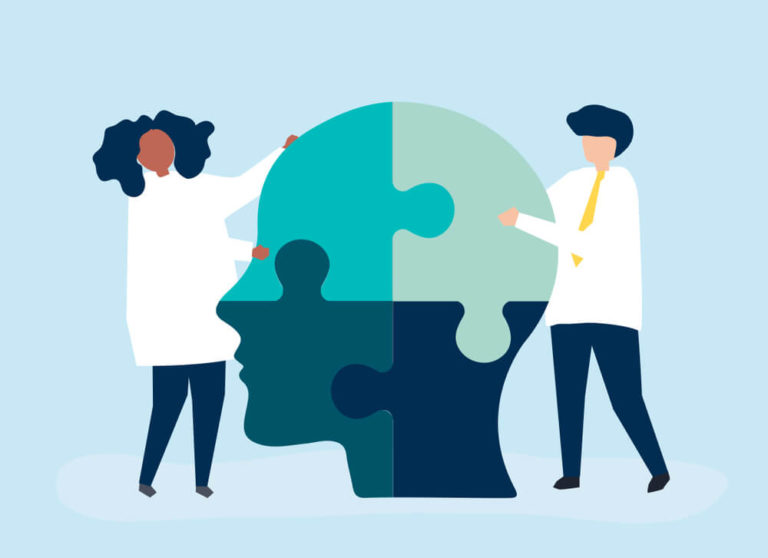
It is crucial to take care of body and mental health to get the most from life. You can do small things every day, which may help you look after your mental health. Below are 10 simple ways to look after your mental health.
It doesn’t take much money or time to make simple changes in your lifestyle. Anyone can follow the advice. So, why don’t you start today?
Talk about your feelings with others

Talking about your feelings with others can help you stay mentally healthy and sound. It enables you to deal with times when you feel troubled.
You should remember that talking about your feelings isn’t a sign of weakness. It’s just a part of taking charge of your well-being.
On the positive side, talking is an effective way to cope up with a problem you’ve been carrying around in your head for a while. Just being listened to or listening to others can help you feel supported and less alone. So, if you open up your feelings, it might encourage others to do the same.
Keep yourself active
Researchers found that exercise makes us feel better by releasing chemicals in our brain. Doing exercise regularly can boost your self-esteem. Also, it can help you concentrate, sleep, look and feel better. Regular exercise also keeps the brain and other vital organs healthy.
Doing exercise doesn’t just mean doing sport or going to the gym. For example, you can walk or run in the park. Also, you can do some activities such as gardening or housework. However, you should do some exercise or activities for at least 30 minutes five days a week. It can keep you active and fit.
So, you should try to do any physical activity that you enjoy as a part of your daily activities.
Eat healthy food

There are strong connections between our food and emotions. For instance, if you take caffeine and sugar, it can immediately affect your mood. But food can also have a long-lasting impact on your mental health.
Like other parts of your body, your brain needs a mixture of nutrients to stay healthy and function well. Therefore, a diet plan that is good for your physical health is also good for your mental health.
A healthy balanced diet includes:
- Plenty of different types of fruit and vegetables
- Wholegrain cereals or bread
- Nuts and seeds
- Dairy products
- Oily fish
- Plenty of water.
Try to eat at least three meals each day, and drink plenty of water. Also, you should try to limit your intake of caffeine or sugary drinks. If possible, do not drink alcohol or avoid drinking too much of it.
Keep in touch with friends and family
Strong family connections and supportive friends can help you deal with life’s stressors. Friends and family can make a person feel included and cared for. Because they are the best people for giving different opinions on troubling topics. Also, you can share your feelings with them without being afraid of it going out. They can keep you active, grounded, and help you solve practical problems.
Take a break from everything
Changing the scene or the pace is good for your mental health. A five-minute break from cleaning your kitchen, a half-hour lunch break at work, or exploring something new on the weekends can improve your productivity.
A few minutes can be enough to relieve you from your stressors. Give yourself some ‘me time’ to recover your mind from the daily stresses and fatigue.
Accept who you are
Some of us are good at making people laugh, and some are good at maths, others can cook delicious meals. Some of us share our lifestyle with the people who live close to us, and others live very differently.
We are different from one another and have different personalities. It is much healthier to accept that you are unique than to be like anyone else.
Feeling good about yourself can boost your confidence. It can also help you in learning new skills, visiting new places and making new friends. Good self-esteem helps you to cope with problematic situations when life takes a difficult turn.
Drink sensibly
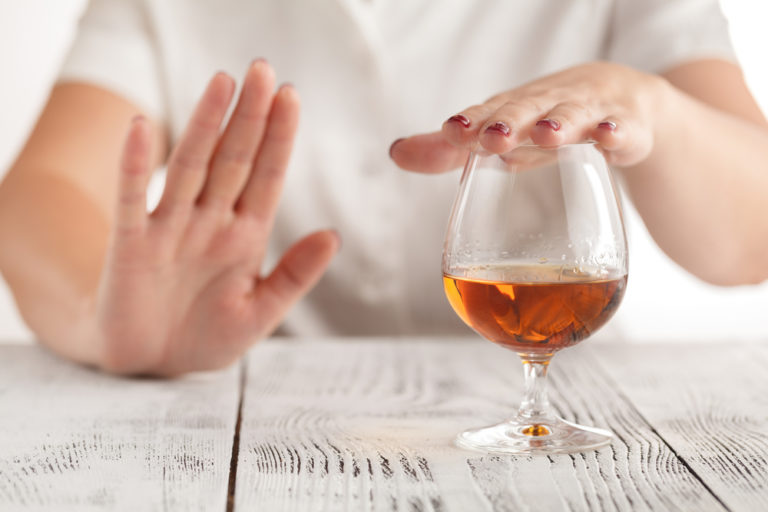
People often drink alcohol to change their mood. Some people drink alcohol to deal with their fear or loneliness. But, you should know that the effect of alcohol is only temporary.
If you drink too much alcohol, the symptoms and effects of the mental diseases will be severe when the drink wears off. As a result, you will feel much worse than before. It is because of the way alcohol withdrawal symptoms affect your brain and the rest of your body. So, drinking is not an effective way to handle your complicated feelings.
However, It is found that occasional light drinking is perfectly healthy and enjoyable for most people. If you can handle occasional drinking, you can drink 14 units of alcohol a week without worsening your condition. So, drink occasionally but keep the drinking limit under control.
When you feel bad, ask for help.
None of us is superhuman and can control everything in our lives. At some point, we all get tired or overwhelmed when things go wrong. So, if things are getting out of your control, and you think you can’t manage them, ask others for help.
When facing difficult feelings, do something you’re good at.
If you are facing a hard time and can’t cope with them, do something you like and are good at. Maybe you will enjoy the activities, and this will help you beat stress. Doing your favourite activity means you’re good at it, which will help you achieve something that boosts your self-esteem. So ask yourself the below questions and make a list.
- What do you love doing?
- What activity did you love doing in the past?
- What activities can you lose yourself in to divert your bad feelings?
Care for others
Caring for others is often an essential part of keeping up relationships with people close to you. It can even bring you closer together.
Conclusion
Your mental well-being is essential for performing specific tasks and staying fit and healthy. It also indicates that your life is going well, and you can give the best at what you are doing. Good mental health can protect you from mental illness. So, it is crucial that you should practice effective mental health.
You can take some simple but powerful steps to maintain and improve your mental well-being. However, if you think the conditions and symptoms are going out of your hand, you should immediately seek professional support and treatment.
The latest
Table of Contents
Never Miss An Update
Get weekly industry tips sent straight to your inbox





Important Links
With a team of industry professionals producing and delivering our course content, you can be sure the skills and knowledge you learn are applicable to your career aspirations, whether that’s in management, administration or beyond.





